Overseas media attention! Australia’s reason for rejecting Huawei is untenable.
Cctv newsOn August 30th, International Sharp Review, the general radio and television station of China, broadcasted an article entitled "Australia’s reasons for rejecting Huawei are untenable", which was reprinted or quoted by many overseas media.
From August 30th to September 1st, CNBC, Singapore Asia News Channel, Malaysia National News Agency Radio, etc. quoted relevant contents or materials. French digital radio LCF facebook account, German-Chinese Report website, Spanish Radio International website, Italian Radio We website (facebook, twitter), Indian Daily Morning News website, Kazakhstan Industrial News website, Jordan Global Radio facebook account, Nordic Times website, Europe-China United Times website and many other overseas media forwarded. The main reports are as follows:
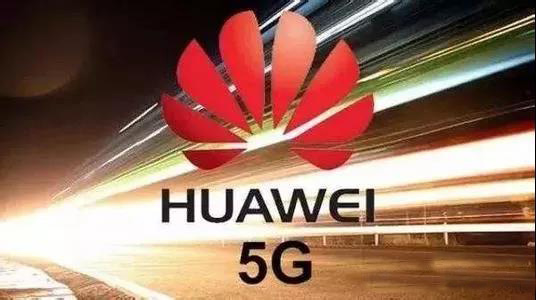
For those who are concerned about the development of global telecommunications technology, if asked which company in the world has suffered the most and been censored the most? People may think of China Huawei in unison. Recently, the Australian government banned Huawei from participating in the construction of Australia’s 5G network on the grounds of "network security" in an obscure statement, which hindered the company’s business in Australia.
Network security is the focus of all network users and the core concern of all countries. However, this concept should not be too generalized, and even become an excuse to achieve a certain political goal. As far as Australia prohibits Huawei from participating in its 5G network construction, the reason of "network security" is untenable from any level.
First of all, from the perspective of cooperation, according to public information, Huawei, as the world’s largest telecom equipment supplier, has cooperated with 45 of the world’s 50 mainstream telecom operators, covering 170 countries and supporting the daily communication needs of more than one-third of the world’s population. If Huawei’s network is not secure, the global telecom giants will never venture to cooperate with it. According to the news released by Huawei, Australian operators have been using Huawei equipment for 15 years, during which there has never been an incident that threatened Australia’s national security; Huawei has never received any questions from the Australian government about its corporate governance and the safety of its business operations.
Secondly, from a technical point of view, Huawei, as the largest provider of 4G network technology in Australia, not only promoted the competition in the local telecommunications market, but also reduced the broadband and communication costs of local consumers. With the development of information technology, 5G network with higher speed and lower delay is becoming the next competitive point in the industry. At present, Huawei ranks first in the world in the number of 5G patents, and most western countries, including Britain, New Zealand and Canada, accept Huawei’s common practice of expanding 5G on the basis of 4G. In fact, there is no essential difference between 5G architecture and 4G, and its core network and access network are separated. Compared with 4G, it has a more perfect guarantee mechanism in security and privacy protection. Since Australia asked Huawei to build a 4G network, why not 5G?
Thirdly, from the industrial point of view, in today’s highly globalized world, Huawei, Nokia, Ericsson and Apple all have similar global supply chains and production lines, and all of them are made in China. Even if Australia refuses Huawei to participate in the construction of the 5G network and chooses other manufacturers, most of the 5G devices deployed by other manufacturers will still be made in China.
"Cyber security" is just an excuse for Australia to close the door to Huawei. It is neither in line with business rules nor aboveboard, and there are deeper political factors behind it. For a long time, China has been Australia’s largest trading partner, and the United States has always provided it with a security umbrella. Australia is trying to find a balance between these two most important foreign relations. Since last year, Australia-China relations have been cold, and the unfriendly side to China in Australia’s domestic atmosphere has risen sharply. China students have been accused, Chinese in Australia have been questioned, and all people or organizations associated with China have been labeled as "unsafe". As a multinational private enterprise in China, Huawei originally participated in Australian business through fair competition, but it was "original sin" because it came from China.
The National Defense Authorization Act recently passed by the United States stipulates that it is forbidden for any U.S. government department to use the products of China Huawei and ZTE, and it is also forbidden for any entity that has business relations with the U.S. government to do so. In terms of security, Australia, which has always looked at the United States with a wink, took advantage of the complex domestic political atmosphere to violate the treaties or agreements on bilateral investment and free trade signed by China and Australia in 1988 and 2015, at the expense of the interests of the Australian people, and blocked Huawei from the market under the pretext of "security". According to the latest news, this move has caused Australian communication service providers to prepare to raise prices.
China-Australia relations are essentially win-win cooperation. Over the years, Huawei has been rewarded in the Australian market because of its efforts in innovation, and Australia has also accelerated the upgrading of information facilities and the transformation of the digital economy because of the products and services provided by Huawei, and both enterprises and people have a real sense of gain. Commercial issues should not be politicized. If Australia wants to seize the opportunity of information technology and achieve economic growth in the next few decades, it should take off its colored glasses and welcome innovative China enterprises like Huawei to actively participate in its development process.
Many overseas media quoted and forwarded "International Sharp Review" articles:
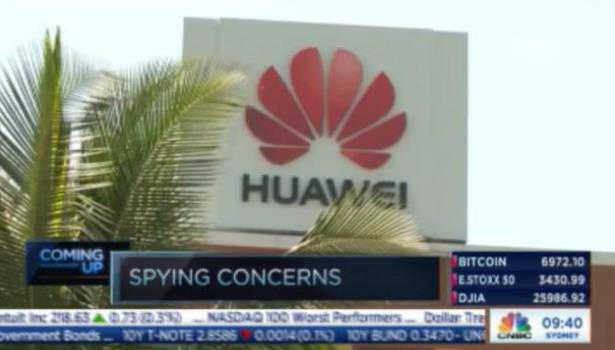
As of September 1, 2018, CNBC has quoted relevant content or materials twice.
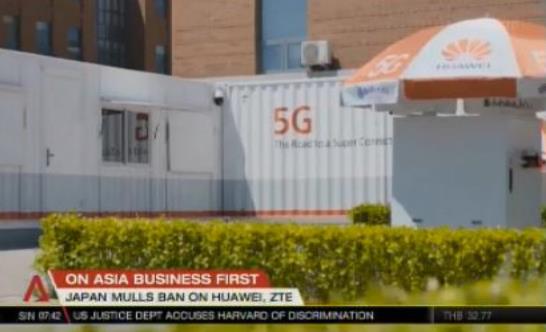
As of September 1, 2018, Singapore Asia News Channel has quoted relevant content or material 6 times.
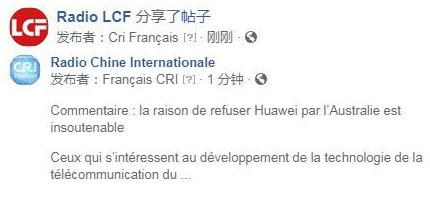
French digital radio LCF facebook account forwarded on August 30, 2018
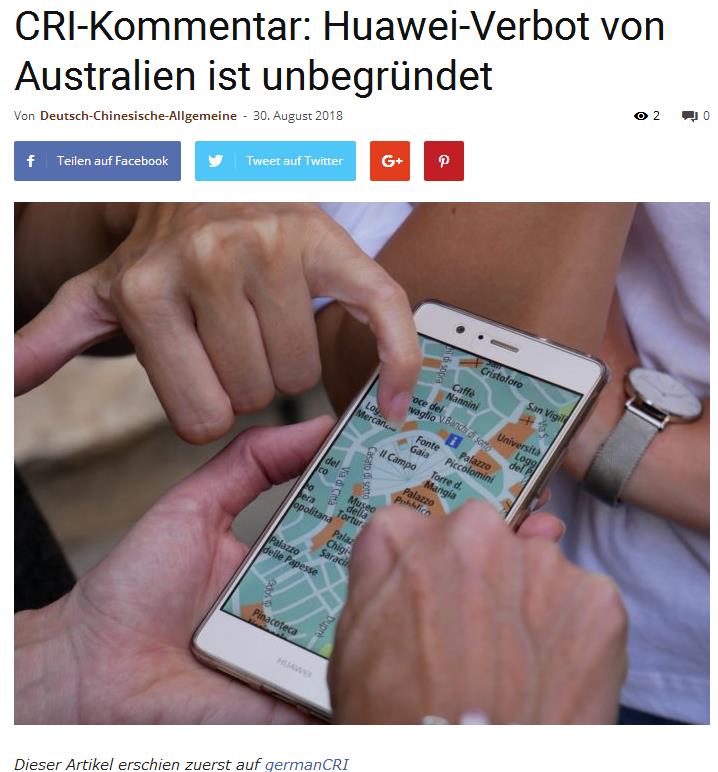
The German-Chinese Report website was forwarded on August 30, 2018.
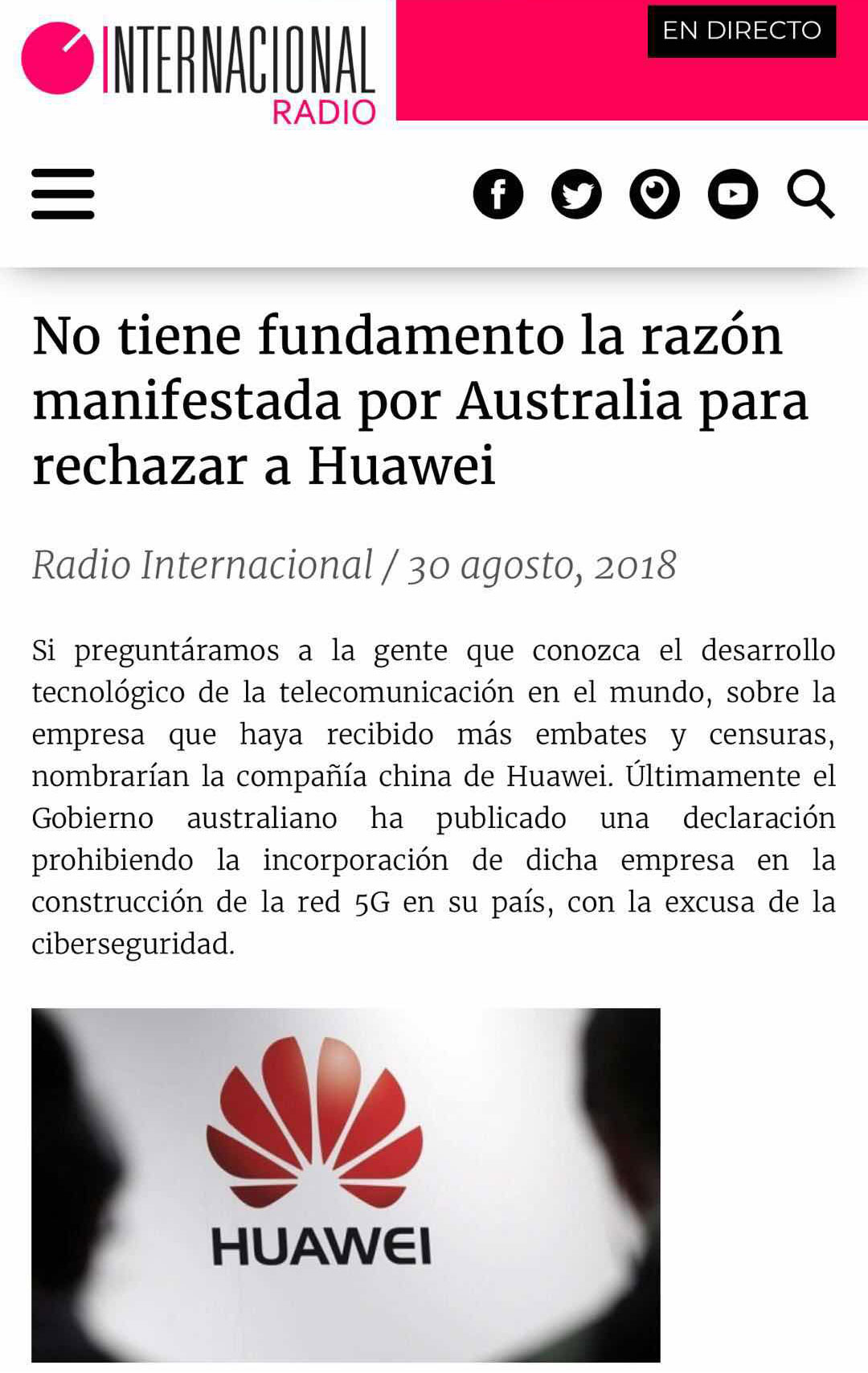
Radio Spain International website forwarded on August 30, 2018
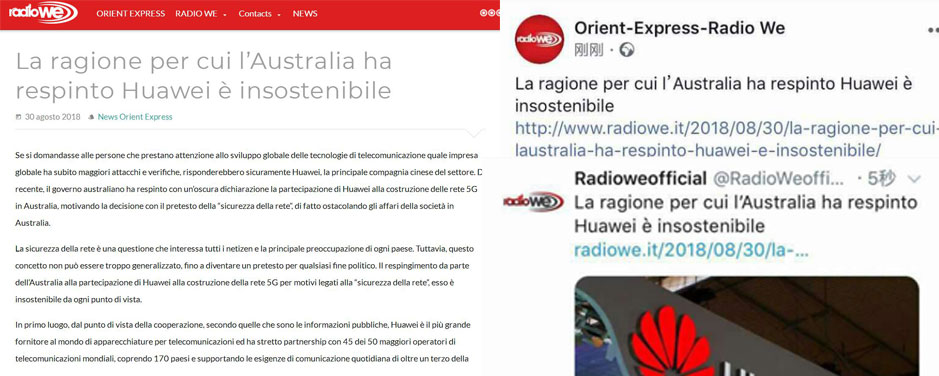
Italian Radio We website (facebook, Twitter) forwarded on August 30, 2018.

India’s "Daily Morning News" website was forwarded on August 30, 2018